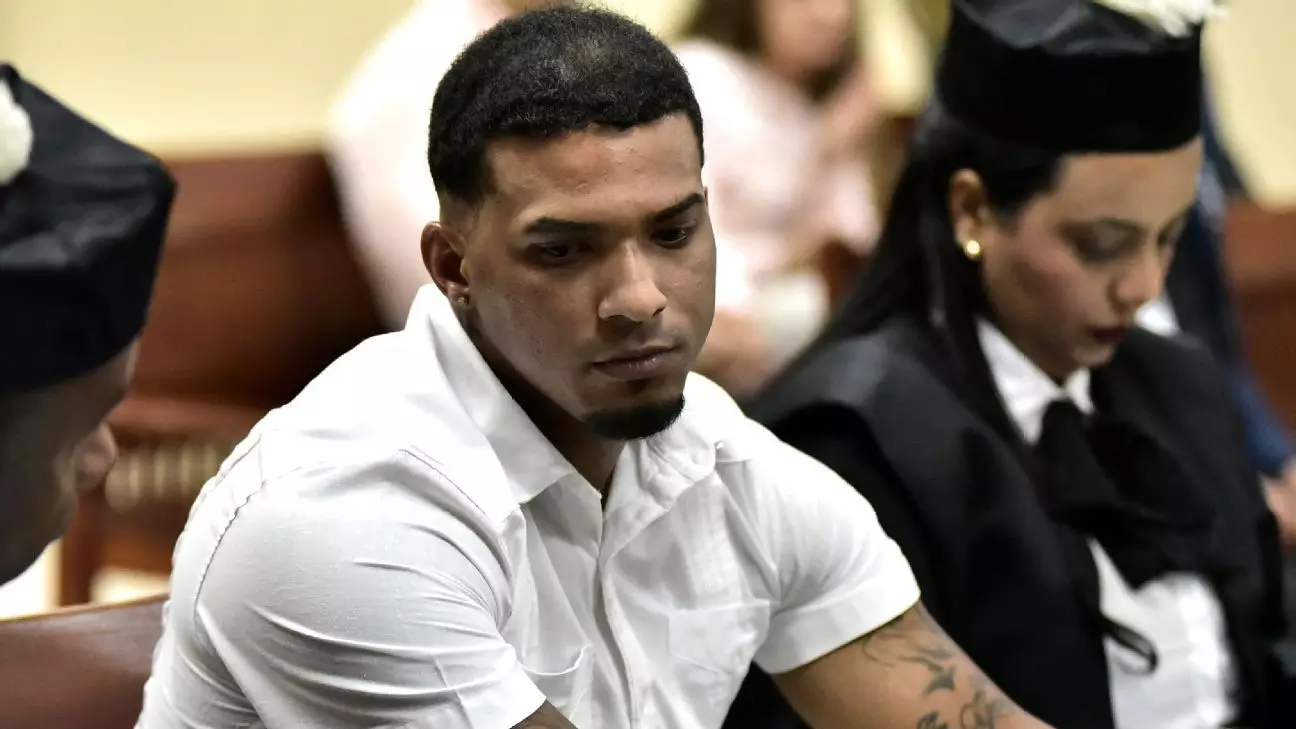The once-promising career of Tampa Bay Rays shortstop Wander Franco has been cast into a dark abyss following his conviction for sexual abuse of a minor in his native Dominican Republic. What began as whispers on social media quickly escalated into a grim narrative that would forever mar not just Franco’s image, but also raise critical questions about athlete accountability and the systemic failings that allowed this situation to unfold. While he was initially perceived as a beacon of talent—dubbed a baseball prodigy and revered for his skills—his actions have pitted him against moral and legal standards that transcend the game.
The Legal Circus
Franco’s conviction was not just a fleeting slip-up; it highlights larger issues of justice and privilege. Given that prosecutors aimed for a five-year prison sentence, the leniency shown by Judge Jakayra Veras, who handed down a mere suspended two-year sentence, raises eyebrows. This situation brings to light a pertinent question: does fame offer a shield against the consequences of one’s actions? For Franco, he might have narrowly escaped a harsher fate. Still, the restrictions placed upon him post-conviction indicate that his freedom walks a tightrope. If he so much as wavers by contacting minors with salacious intent, he could face serious repercussions.
Parenting Under Duress
Equally disturbing is the role of the victim’s mother, Martha Vanessa Chevalier Almonte, who was convicted of trafficking her daughter and now faces an exemplary 10-year prison sentence. Her pursuit of financial gain at the expense of her daughter casts a shadow over an already vile situation. While we often look upon child abuse as an act committed by the predator alone, this saga showcases a chilling breakdown in familial trust and responsibility. When the very adults who are supposed to safeguard children actively participate in their exploitation, society must confront the gross failures of its protective systems.
The Irony of Fame
This disgrace marks a startling juxtaposition in Franco’s career trajectory. He signed an eye-watering 11-year, $182 million contract—an indicator of his immense potential within Major League Baseball (MLB). But now, Franco finds himself ensnared in a quagmire of legal issues that might seal his fate as a pariah within the league. Being on the restricted list not only curtails his career growth but also seemingly unravels the aspirations he and many ardent fans held. The reality is brutal; talent can only carry one so far, and when it collides with ethical violations, it renders all former accolades void.
The Broader Implications
What makes Franco’s case particularly disheartening is its ripple effect on the MLB as an organization. A league that prides itself on a Joint Domestic Violence, Sexual Assault, and Child Abuse Policy now stands at a crossroads. Although the league articulated a commitment to address these issues, one can’t help but wonder if enough is being done in practice. How do we reconcile the glamor and spectacle of sports with the responsibility to protect vulnerable populations? The murky waters of allegations and investigations can cloud the waters of justice and public perception for years to come.
A Cautionary Tale
Franco’s downfall serves as a cautionary tale for all those in positions of power. It’s disturbingly easy to slip into patterns of entitlement and disregard, especially when surrounded by an ecosystem that often prioritizes victory over virtue. In our modern world, where public figures wield immense influence, accountability must be non-negotiable. The consequences of unchecked privilege can lead to devastating outcomes—both for victims and for the reputations of those involved.
This situation should ignite a fire within sports culture, beckoning players, management, and fans alike to advocate not only for excellence on the field but also for ethics in life. If we fail to confront these issues now, we merely allow the cycles of abuse and exploitation to perpetuate, ultimately shattering lives in silence.

Leave a Reply